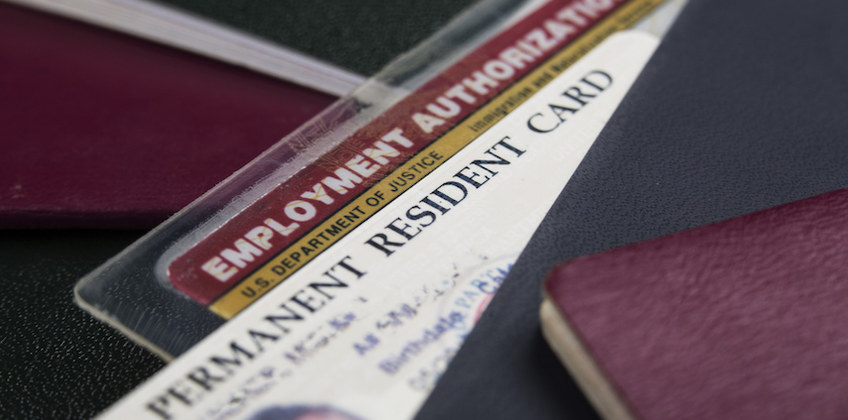The Feds Sue California over State Immigration Laws

Los Angeles, CA: It is a well-known fact that the State of California is, and has remained progressive with regard to standing up for the rights of it undocumented workers. And with good reason: immigrants, including those who don’t necessarily have their papers account for 10 percent of the State’s workforce. Removing the undocumented worker from the equation would have a dramatic and negative impact on the California economy. The State’s defense of the undocumented worker, however, puts California in the crosshairs of the US Department of Justice (DOJ), which is now suing the State of California over its immigration policies.
According to Court documents the DOJ was in a California federal court earlier this month asking a judge to invalidate three California laws protecting the undocumented worker, based on the DOJ’s view that such laws are getting in the way of federal enforcement of US immigration laws inherent with the Trump Administration.
Immigrants and undocumented workers, in general, face discrimination and harassment to a greater degree than indigenous Americans – with undocumented workers threatened with job loss and deportation, amongst other forms of harassment. In California, undocumented workers are encouraged to fight back with an undocumented worker lawsuit, if necessary – in tandem with State statutes that shield undocumented workers from unnecessary abuse through wrongful termination, or otherwise.
The Immigrant Worker Protection Act regulates the way private employers in California can respond to federal efforts to investigate workplace immigration law compliance, and prohibits private employers from voluntarily permitting immigration enforcement agents on any nonpublic workplaces unless that agent has a warrant.
AB 103 subjects local detention facilities to twice-yearly inspections by California’s Office of the Attorney General. Finally, the California Values Act (SB 54) prohibits state and local law enforcement officials other than people who work in correctional facilities from providing information about release dates, or other information such as home addresses of detainees.
The three statutes in question were signed into law in California within the last nine months. The feds argue that State lawmakers shouldn’t be allowed to circumvent federal statutes and thereby, preventing enforcement efforts.
“The provisions of state law at issue have the purpose and effect of making it more difficult for federal immigration officers to carry out their responsibilities in California,” the Justice Department said. “The Supremacy Clause does not allow California to obstruct the United States’ ability to enforce laws that Congress has enacted or to take actions entrusted to it by the Constitution. Accordingly, the provisions at issue here are invalid.”
“No matter what happens in Washington, California will stay the course and enforce all our laws and protect all our people. That’s how we keep our communities safe.”
California’s position with regard to this federal lawsuit gives pause for optimism to the undocumented worker, who will retain the freedom to fight needless abuse and harassment with the help of an undocumented worker lawyer, if necessary.
The federal lawsuit is US v the State of California et al., Case No. 2:18-at-00264, in the US District Court for the Eastern District of California.
According to Court documents the DOJ was in a California federal court earlier this month asking a judge to invalidate three California laws protecting the undocumented worker, based on the DOJ’s view that such laws are getting in the way of federal enforcement of US immigration laws inherent with the Trump Administration.
Immigrants and undocumented workers, in general, face discrimination and harassment to a greater degree than indigenous Americans – with undocumented workers threatened with job loss and deportation, amongst other forms of harassment. In California, undocumented workers are encouraged to fight back with an undocumented worker lawsuit, if necessary – in tandem with State statutes that shield undocumented workers from unnecessary abuse through wrongful termination, or otherwise.
The US Fed v. the State of California on undocumented workers
Three California statutes in particular have infuriated the DOJ, which appeared before a US District Court Judge on March 6 in an attempt to have them quashed.The Immigrant Worker Protection Act regulates the way private employers in California can respond to federal efforts to investigate workplace immigration law compliance, and prohibits private employers from voluntarily permitting immigration enforcement agents on any nonpublic workplaces unless that agent has a warrant.
AB 103 subjects local detention facilities to twice-yearly inspections by California’s Office of the Attorney General. Finally, the California Values Act (SB 54) prohibits state and local law enforcement officials other than people who work in correctional facilities from providing information about release dates, or other information such as home addresses of detainees.
The three statutes in question were signed into law in California within the last nine months. The feds argue that State lawmakers shouldn’t be allowed to circumvent federal statutes and thereby, preventing enforcement efforts.
“The provisions of state law at issue have the purpose and effect of making it more difficult for federal immigration officers to carry out their responsibilities in California,” the Justice Department said. “The Supremacy Clause does not allow California to obstruct the United States’ ability to enforce laws that Congress has enacted or to take actions entrusted to it by the Constitution. Accordingly, the provisions at issue here are invalid.”
California pledges to continue policies of fairness to immigrants
The Governor of California, Jerry Brown – long a champion of the undocumented worker – appeared amused by the federal effort and posted a tweet reminiscent of the Twitter musings of the President. State Attorney General Xavier Becerra issued his own statement, promising to uphold all laws.“No matter what happens in Washington, California will stay the course and enforce all our laws and protect all our people. That’s how we keep our communities safe.”
California’s position with regard to this federal lawsuit gives pause for optimism to the undocumented worker, who will retain the freedom to fight needless abuse and harassment with the help of an undocumented worker lawyer, if necessary.
The federal lawsuit is US v the State of California et al., Case No. 2:18-at-00264, in the US District Court for the Eastern District of California.











No Comments